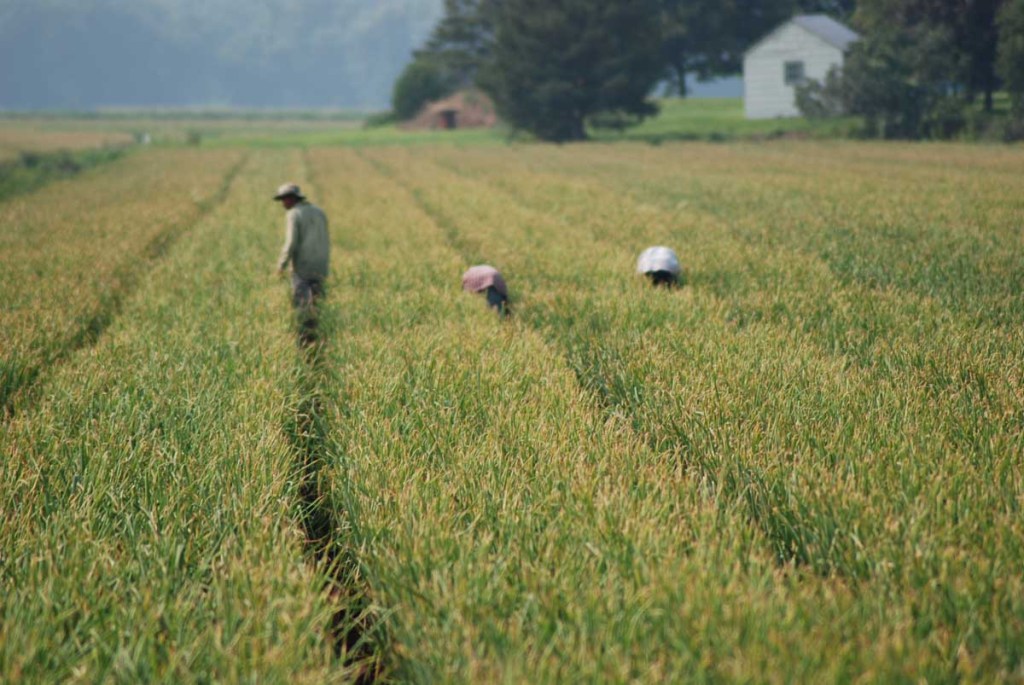Kentucky farmers hope feds won’t stop migrant workers
Published 12:35 pm Tuesday, March 7, 2017

- Farming
While winter turning to spring is typically a great sight for farmers, many across Kentucky and the United States are worried about this year’s crops and who will be working the fields.
Worries are rising among farmers over the Trump administration’s efforts to tighten the guest worker program, as well as trade policy, agriculture experts say.
It is not only farmers who are worried, but also the migrant workers who make up a large portion of the agriculture workforce.
“It impacts them all. It makes them all nervous,” Joe Cain, Kentucky Farm Bureau commodity division director, said. “Everyone is watching it really close.”
Cain said the migrant workforce fills a huge void as many farms struggle to find workers willing to due “hard work.”
Cain said Kentucky has close to 7,000 migrant workers and expects the state to exceed that number in 2017. The Commonwealth is among the top states to utilize the H2-A visa program, which brings temporary foreign workers into the country for seasonal agricultural work.
“I’m hearing from colleagues in other states that their requests are up too,” Cain said. “We’re concerned about delays in the requests, getting the workers approved and getting them here. It’s a big concern.”
The program for requesting migrant workers is also complicated and time consuming, according to Cain and other officials.
Kentucky Agriculture Commissioner Ryan Quarles said he’s been communicating with agriculture advisors for then-candidate and now-President Donald Trump about the “need for an adequate guest worker program to serve Kentucky’s farmers as part of an overall immigration reform strategy.”
Paperwork delays have created a backlog of 30 days or more in processing H-2A applications at both the Department of Labor and Citizen and Immigration Services. As a result of delays, farmers have reported losses of up to $300,000, and many fear that they could even lose their farms due to delays in workers arriving, according to U.S. Sen. Rand Paul.
Paul introduced the Paperwork Reduction for Farmers Act in September intended to prevent bureaucratic delays and costs by creating a more efficient process for farmers applying for guest workers.
“Wrestling with nature creates enough headaches and unpredictability for Kentucky farmers and others across the country,” Paul said in statement to the Richmond, Kentucky Register. “They don’t need more frustration from unnecessary bureaucratic delays in hiring extra hands. My plan would streamline the H-2A application process, make it easier to retain current workers, and require more government accountability throughout the program.”
Paul’s bill would create a simplified contract for farmers wishing to rehire returning H-2A workers instead of having to apply as if the workers are new to the program. The bill also allows farmers to enter into joint contacts with workers. Since H-2A workers are guaranteed a set number of work hours, the bill would let small farmers, who might not have enough work hours by themselves, hire workers together. It would also allow multi-year contracts.
Cain said the program needs to be simpler and easier for farmers to use.
“We’ve got to have the labor force,” he said. “The labor issue has to be addressed. I’m not sure (the program is) designed in way if we have a huge demand that it can meet the demand. When we visited D.C., we stressed it needs to be addressed.”
The Kentucky Farm Bureau took a contingent of about 300 to Washington to meet with the state’s Congressional delegation.
Cain said many topics were discussed on the trip, including the H2-A program, trade, the farm bill and regulations.
“We had one of the best question-and-answer sessions with senators that we’ve had in years,” he said. “It was an effective time to be in D.C. Our delegation gave them the time to discuss things and it was a really good trip.”
While it was a good trip, many issues still remain and worries will continue as farmers plan what to plant and grow on their farms this year.
Cain said farmers will continue to closely watch the program and federal government’s action.
Greene is editor of the Richmond, Kentucky Register.



